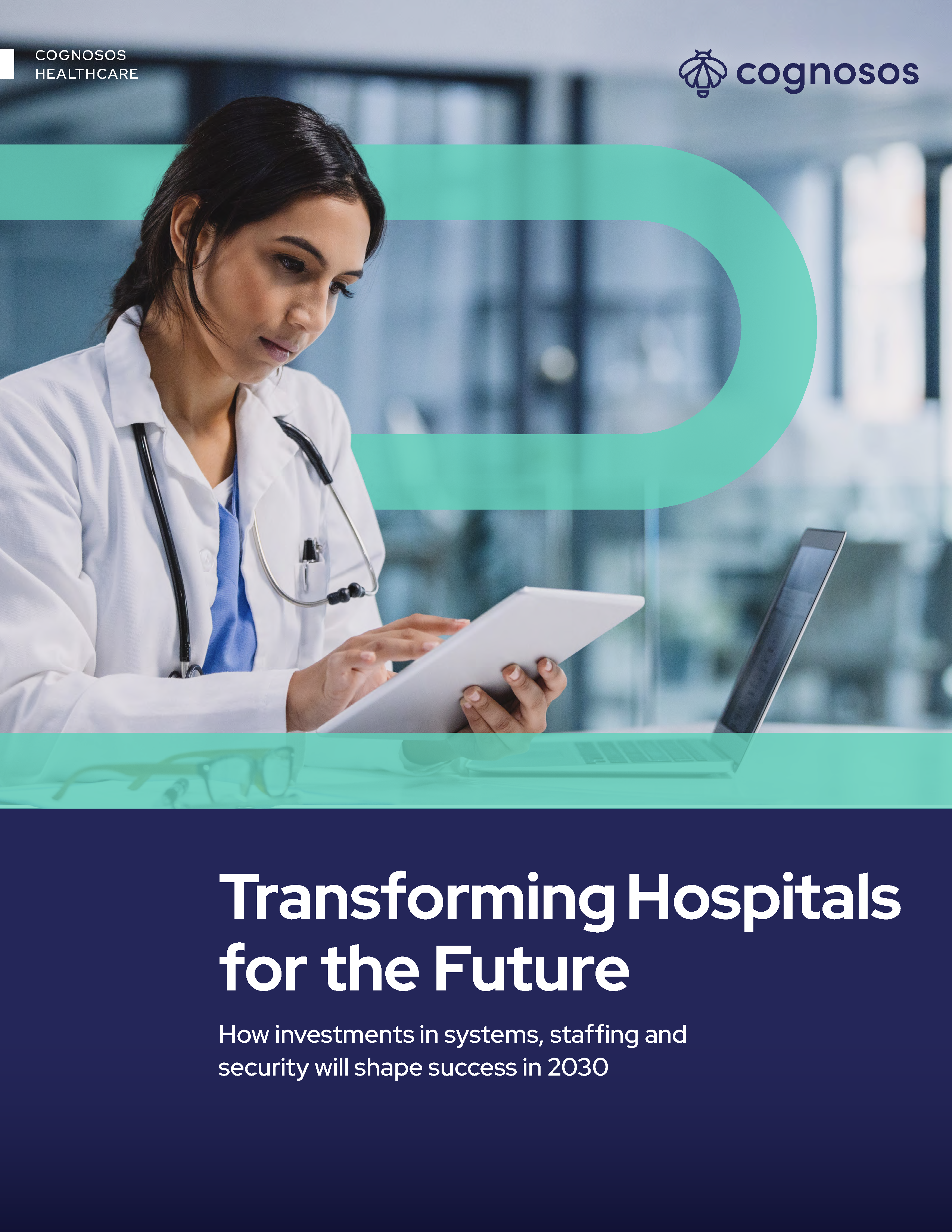Healthcare resources & events
Check out these articles to learn more
LATEST HEALTHCARE ARTICLES
Overviews, case studies, & tip sheets
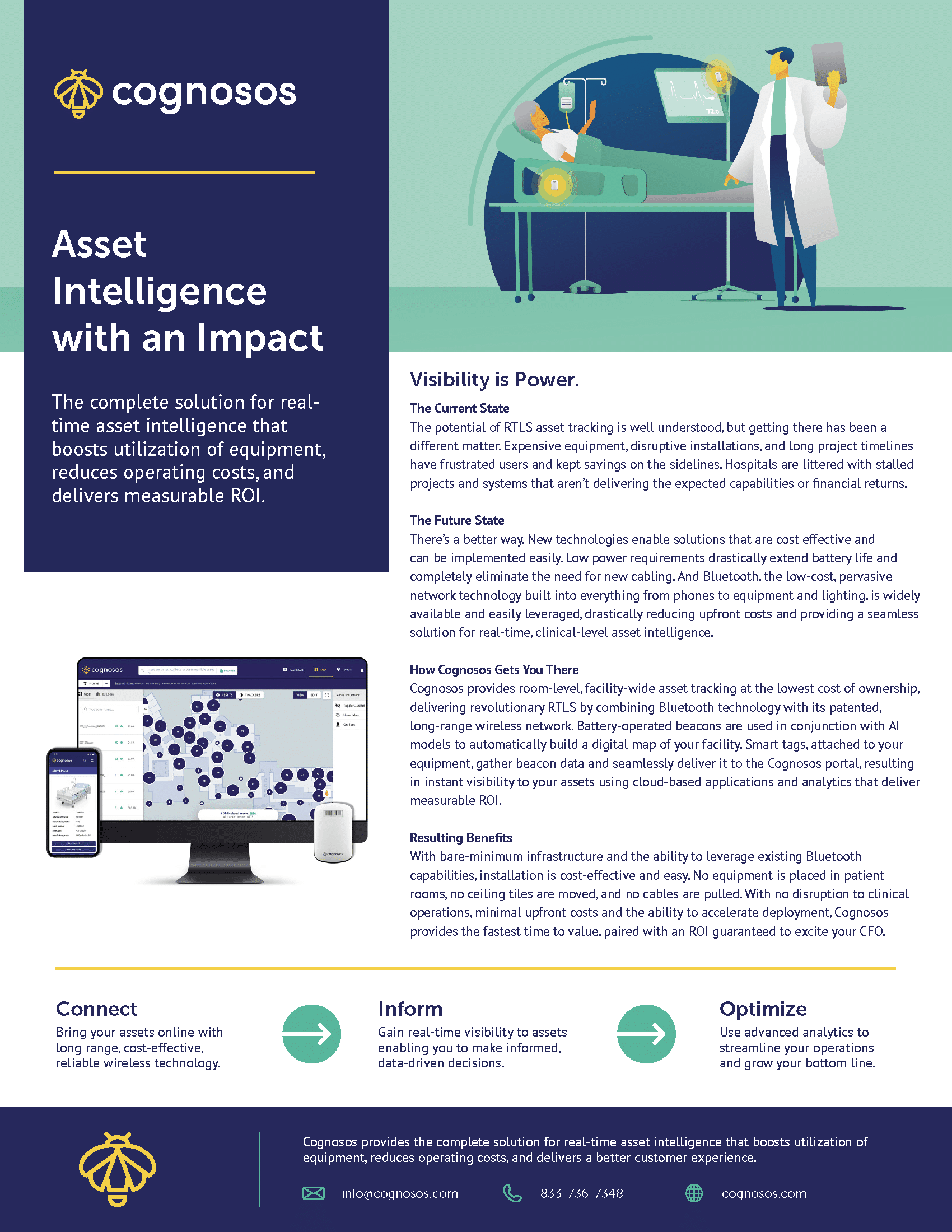
Cognosos Asset
overview
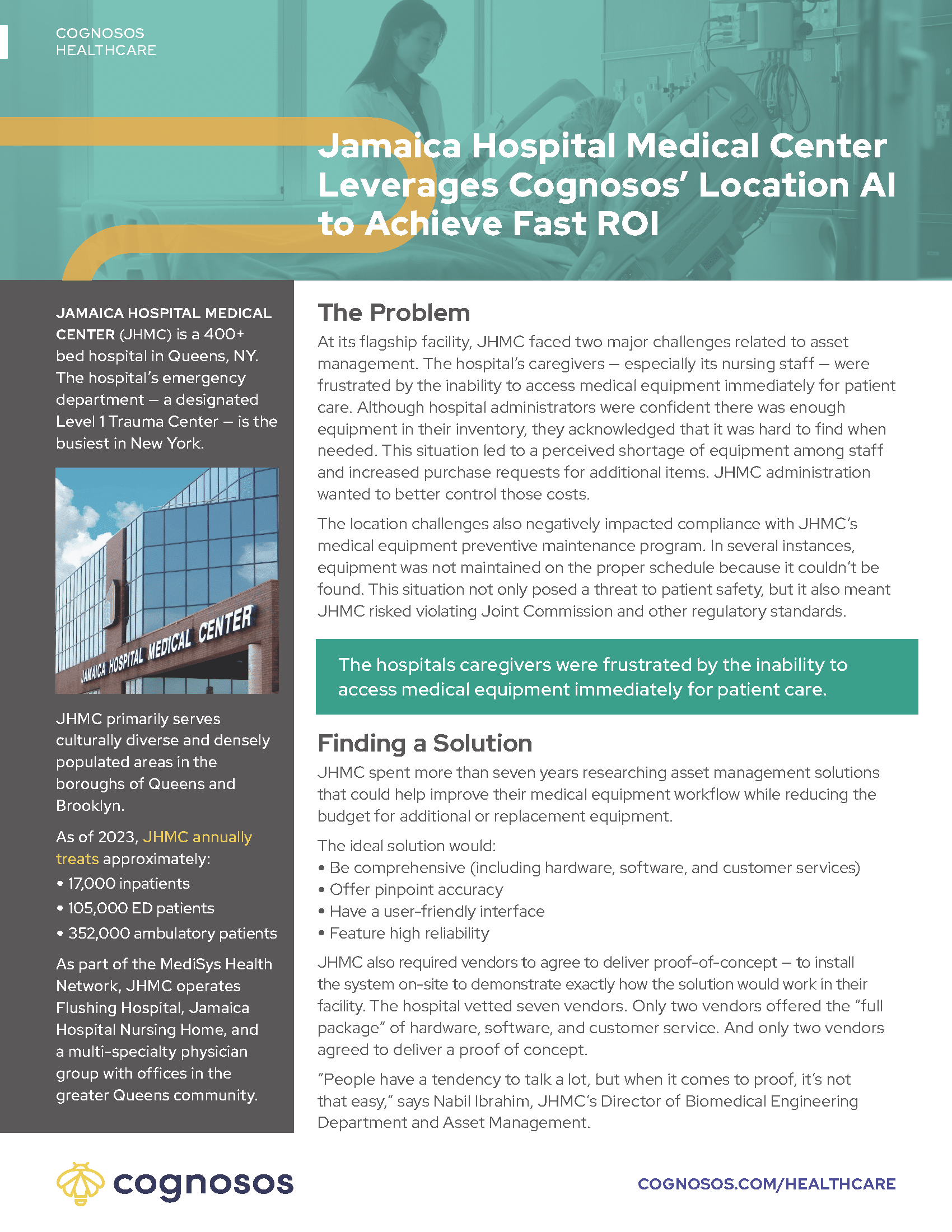
Case Study MediSys Health Network
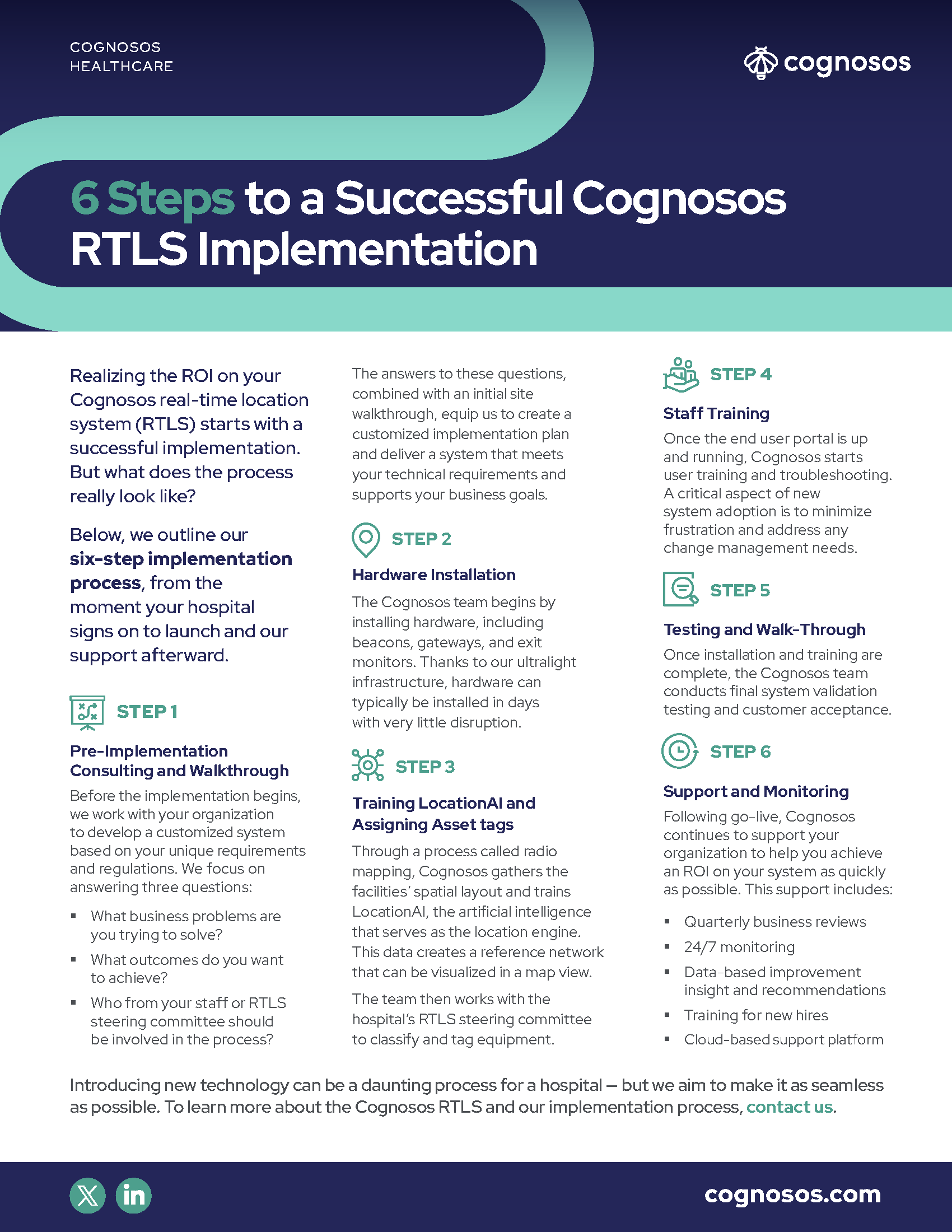
6 Steps to a successful Cognosos RTLS implementation
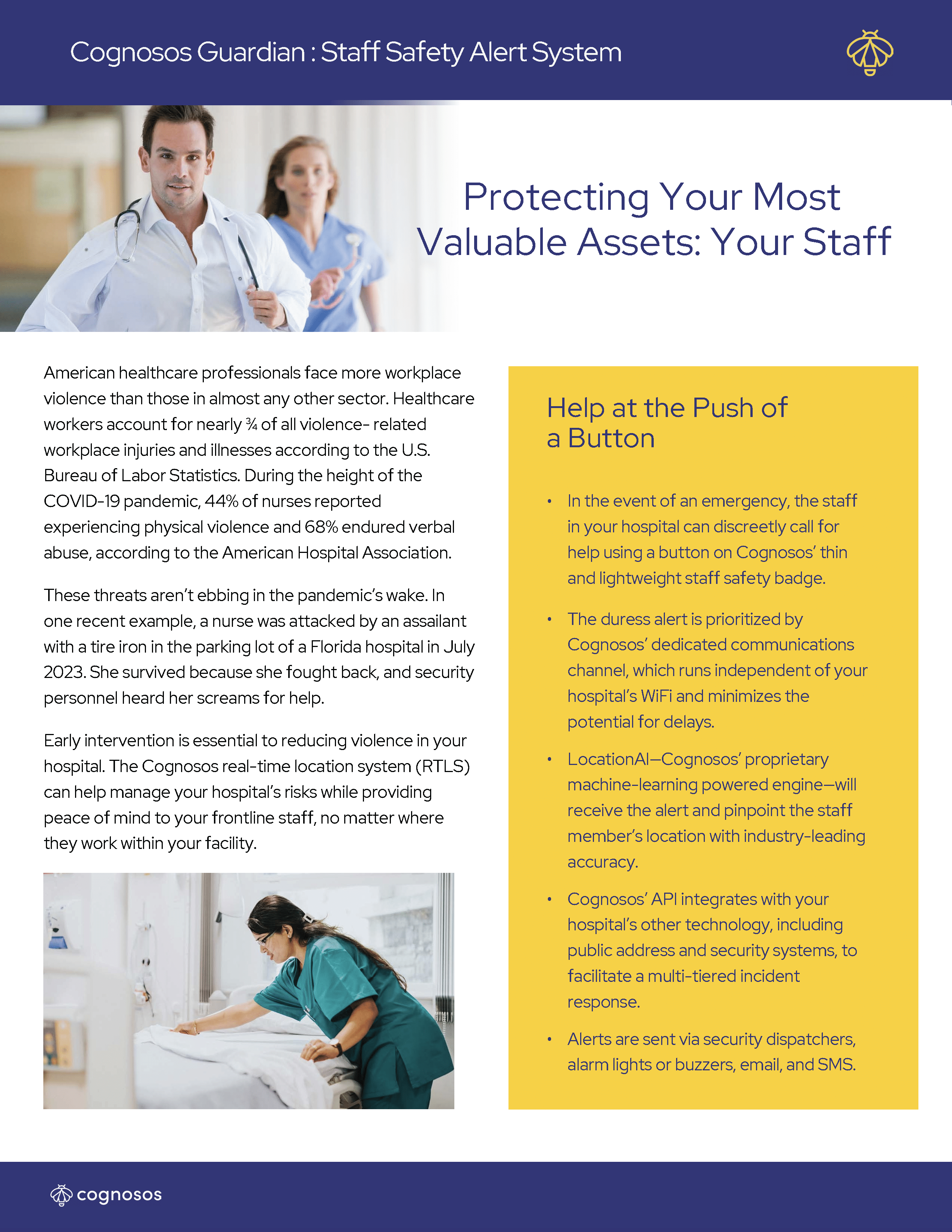
Safety overview
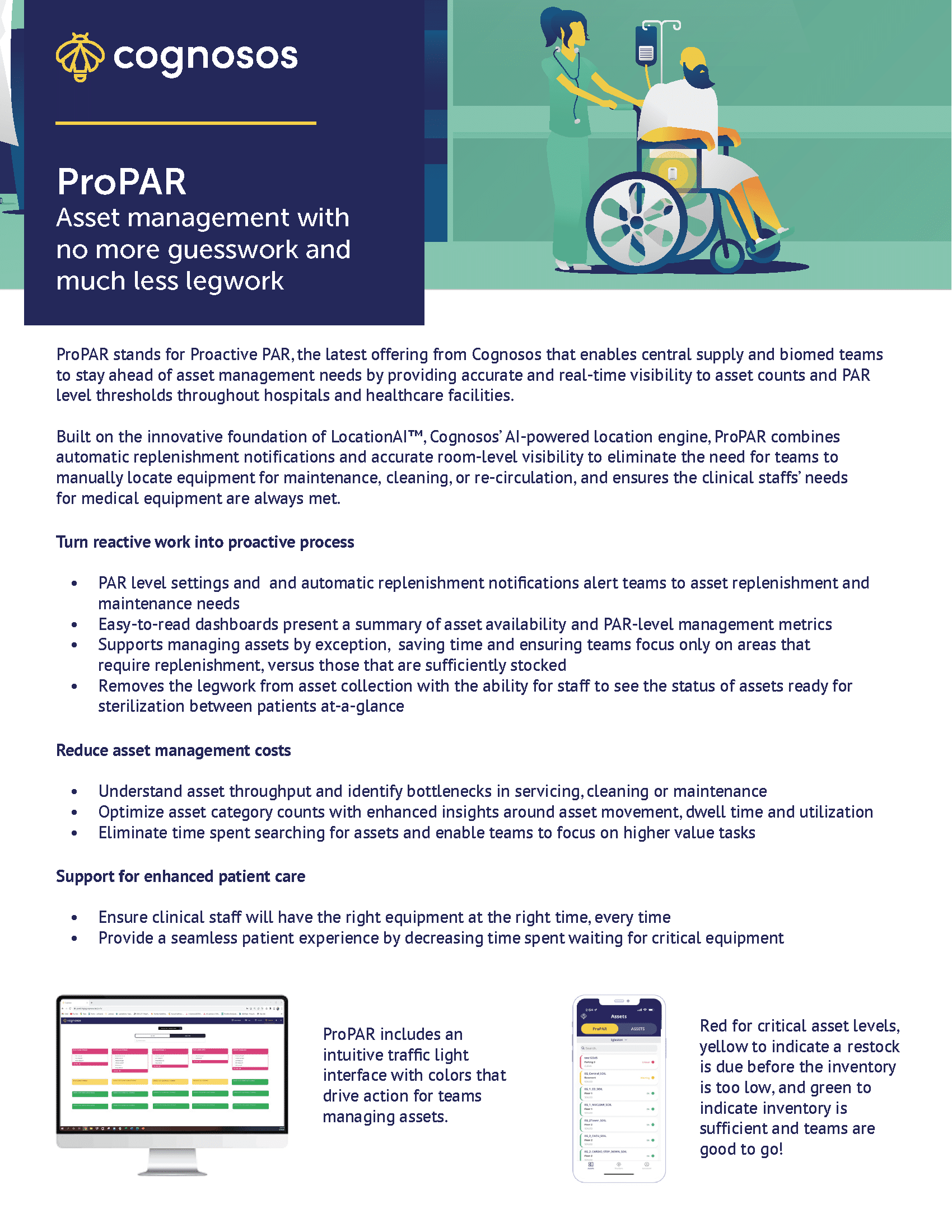
Cognosos ProPAR
overview
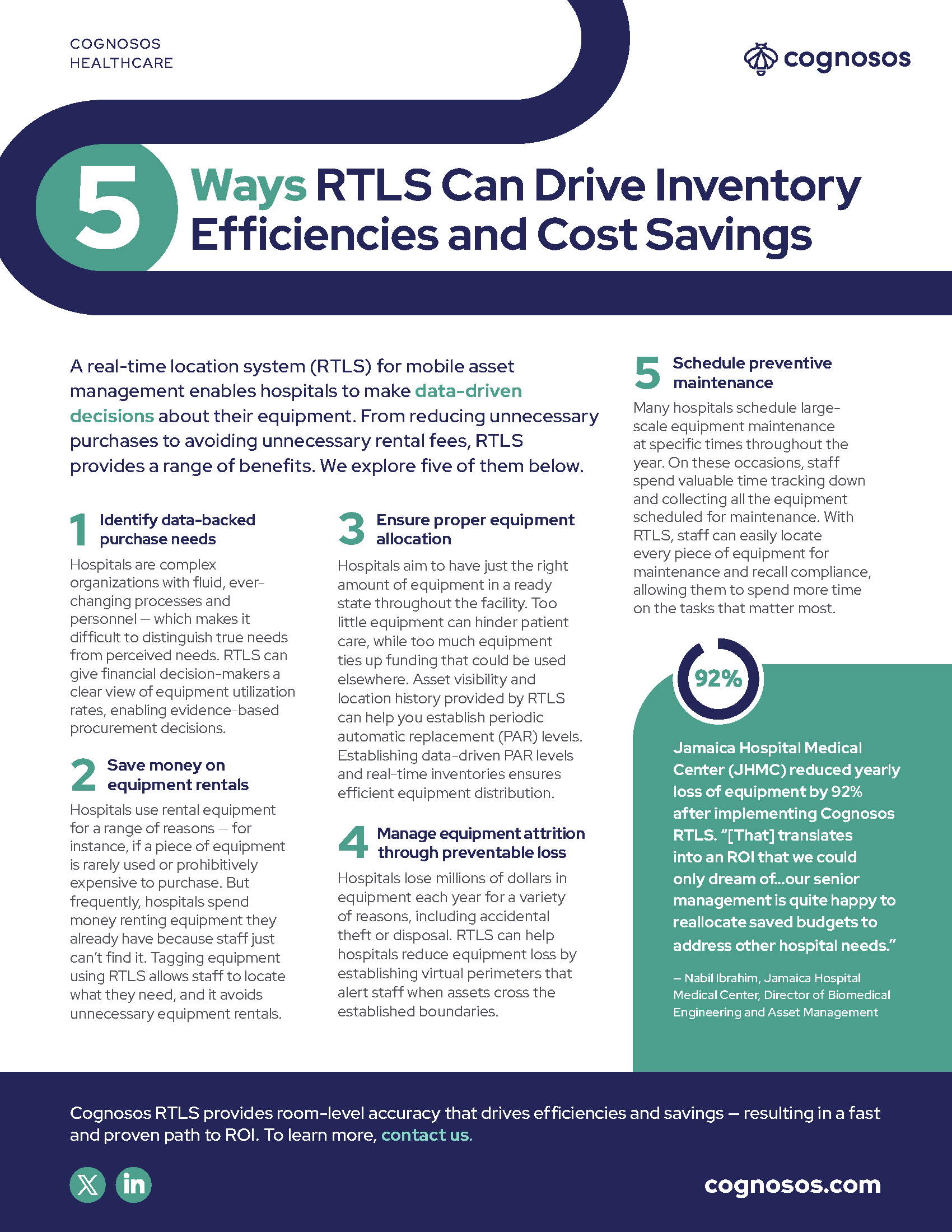
5 Ways RTLS can drive inventory efficiencies and cost savings
White papers, guides, & eBooks
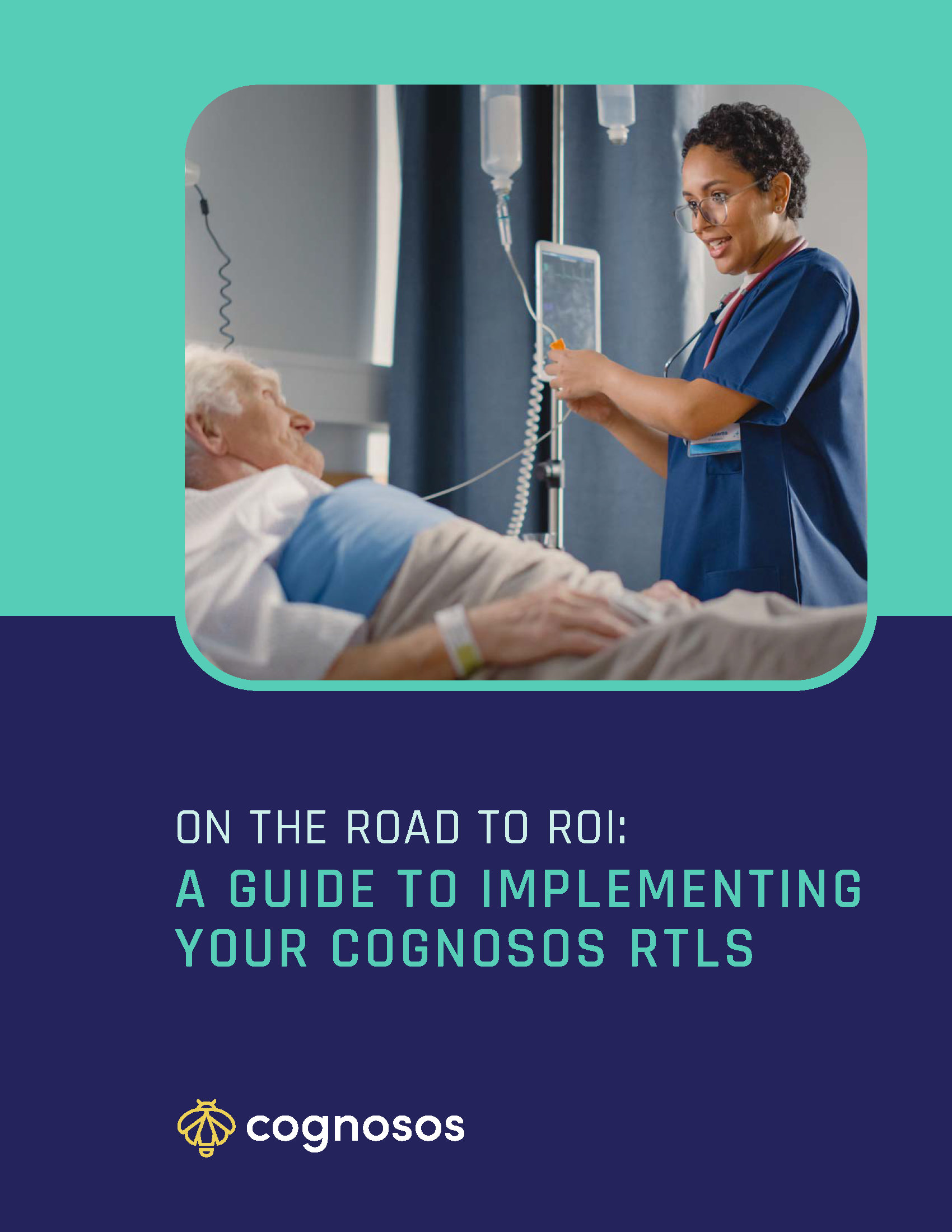
Healthcare RTLS implementation guide
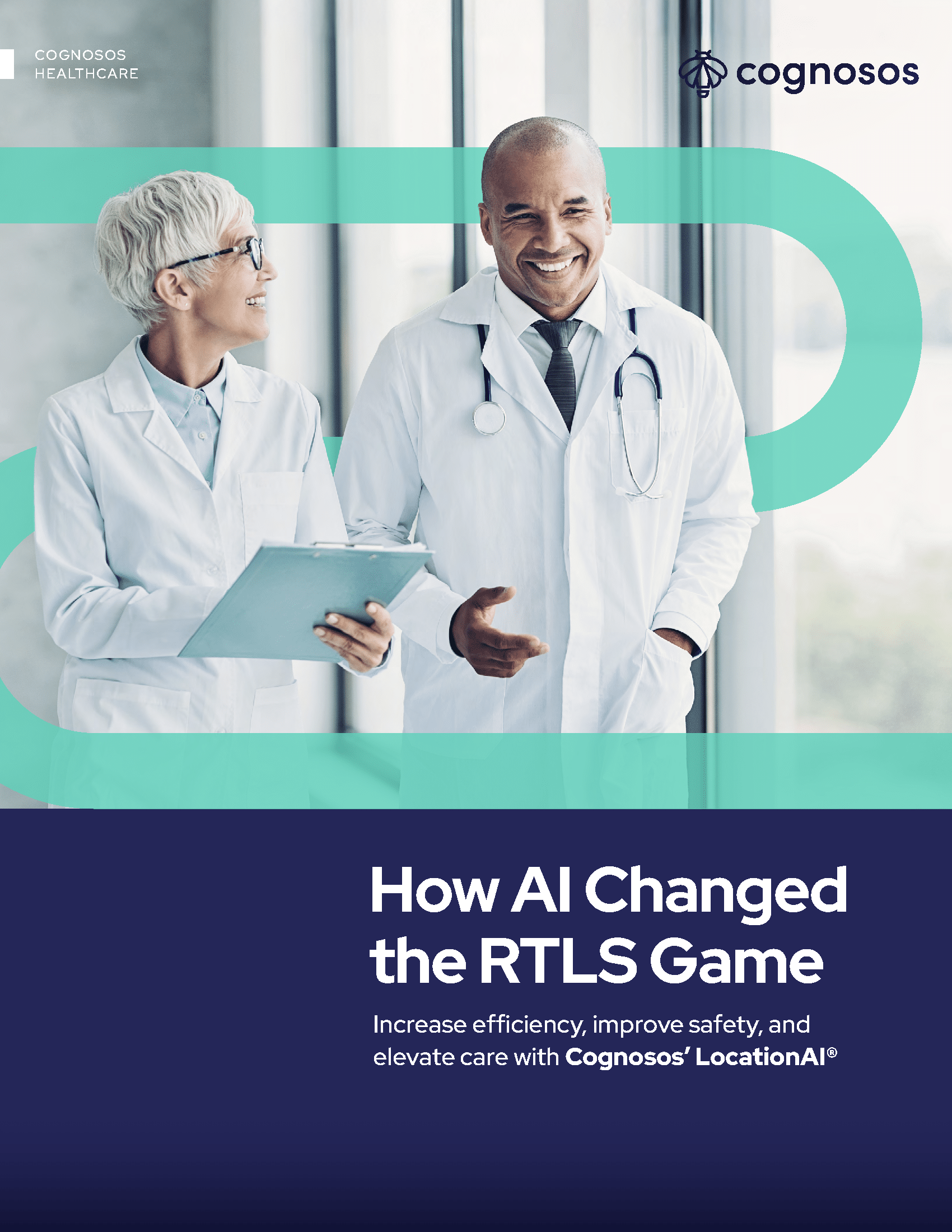
How AI changed the RTLS game white paper
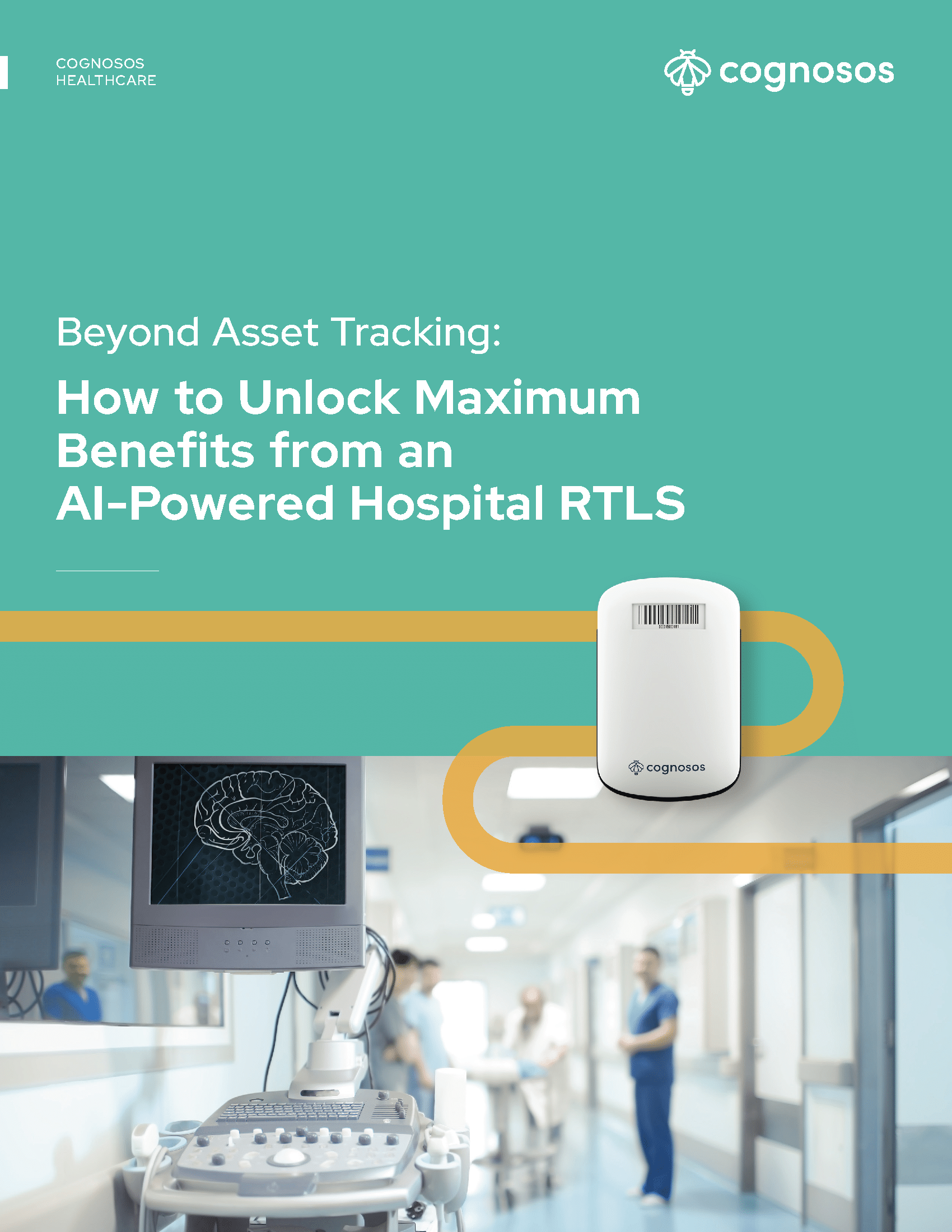
How to unlock maximum benefits from an AI-powered hospital RTLS
